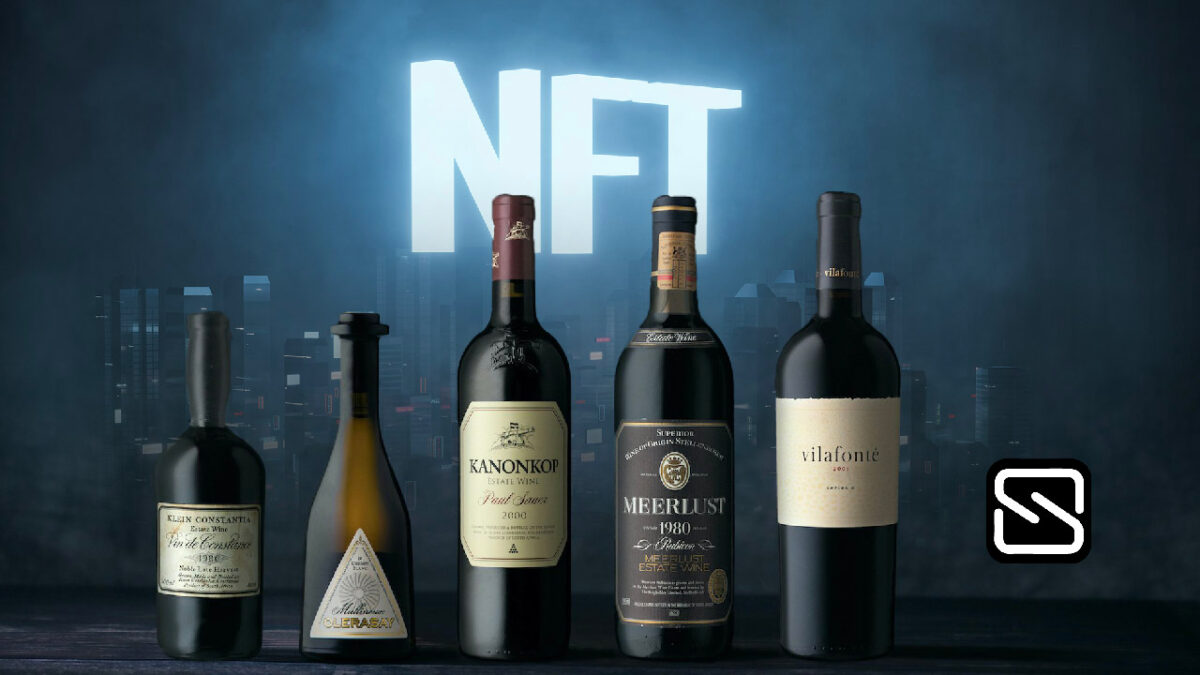NFTs are becoming more and more popular in South Africa. A month ago, there was an auction for Mandela’s arrest warrant NFTs and these raised over $130,000. Yesterday, Strauss & Co announced that it has partnered with five of the world’s most prestigious fine wine producers to auction Africa’s first fine wine NFT next week. NFTs have evolved into a highly efficient method of packaging a selection of wines for trading and investment, and winemakers believe they generate great buzz for the industry.
Vertical collections of Klein Constantia Vin de Constance, Kanonkop Paul Sauer, Meerlust Rubicon, Mullineux Olerasay, and Vilafonté Series C are included in these one-of-a-kind digital contracts, documenting past, current, and future vintages. Each NFT, according to Strauss & Co, houses between 20 and 50 vintages, with collections ranging from 66 to 288 bottles.
All provenance, pricing, transaction, sensory, and aging information is included in the digital contract, which is kept on the polygon blockchain. Because all of the wines were chosen from the estate’s library stocks, each bottle’s seal code was used to authenticate the bottles within the NFT.
The wine auctions are a collaboration between WineCellar.co.za, sommelier Higgo Jacobs, and Strauss & Co. a leading auction company.
Roland Peens, Director and Fine Wine Specialist at Strauss & Co, believes that Africa’s first online NFT auction could help raise international exposure for South African fine wine.
“Various fine wine NFTs have become available over the last 2 years as the NFT market has boomed. Strauss & Co Fine Wine NFTs, however, offer a unique iconic South African industry collective of verticals direct from the producers, providing unprecedented ownership of vintage wines and futures to the collector and investor,” Peens said.
Many of the wines in the NFT are extremely rare, with the estates owning only a few of the 1980 Rubicon and 1986 Vin de Constance, and entire verticals are unlikely to exist. While South Africa has been producing wine for over 350 years, historic wine estates like Meerlust, Klein Constantia, and Kanonkop have only been making bottled wines for the past 40 to 50 years.
The top SA wines have exhibited strong appreciation on the secondary market, providing collectors and investors with a platform.
In 2021, a single bottle of 1821 Grand Constance sold for R967 300 (UGX 233,893,140), while Kanonkop Paul Sauer jeroboams from 1986 to 2006 sold for R546 240 in 2020.
South Africa was the world’s eighth-largest wine-producing country in 2020, accounting for 4% of worldwide wine consumption.
The wine business is important to South Africa’s economy, contributing 1.1 percent to GDP in 2019 and employing up to 300 000 people, or little less than 2% of the workforce.
